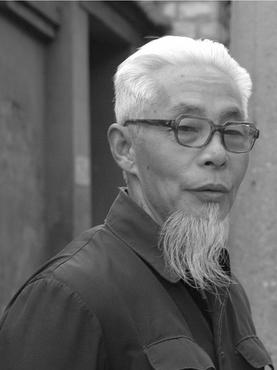I like that headline, given to this opinion piece by one Brahma Chellaney is professor of strategic studies at the Center for Policy Research in New Delhi. I know a lot about Beijing’s current historical fantasies, but I didn’t know much about China’s “invasion” of India in 1962. (I use quote marks because I don’t know enough about it to call it a flat-out invasion.)
China has succeeded in putting the spotlight on Japan’s World War II history. But while harping on that distant war, Beijing refuses to face up to its own aggressions and employs revisionist history to rationalize its assertive claims and ambitions.
With fervent nationalism replacing Communist ideology, the scripted anti-Japanese mob protests earlier this year were one blatant case of the Chinese rulers’ open mixing of history with their politics. Another case in point occurred more recently at a seminar in Mumbai, after Pranab Mukherjee, the Indian defense minister, fleetingly cited the Chinese invasion of 1962 as a defining moment that set in motion India’s new thrust on defense production, and referred to the still-festering border problem with China, which he said had resolved its land-frontier disputes “with all its neighbors except India and Bhutan.”
In contravention of diplomatic norms, which would have involved consulting the Chinese ambassador in New Delhi, China’s Mumbai-based consul general castigated Mukherjee on the spot for using the term “invasion” and claimed that “China did not invade India.” Later, the ambassador, too, criticized Mukherjee’s reference to 1962, telling the Indian media, “Whatever happened in the past is history, and we want to put it back into history.”
The incident revealed how China contradictorily deals in history vis-à-vis its neighbors to further its own foreign policy objectives: While it wants India to forget 1962, it misses no opportunity to bash Japan over the head with the history card. Its aim is not to extract more apologies from Tokyo for its World War II atrocities but to continually shame and tame Japan. (It is ironic that visiting Chinese Premier Wen Jiabao used Indian soil last April to demand that Japan “face up to history squarely,” setting the stage for his country’s orchestrated anti-Japanese protests.)
Another way China manipulates history is by reconstructing the past to prepare for the future. This was illustrated by the Chinese foreign ministry’s posting on its Web site last year a revised historical claim that the ancient kingdom of Koguryo, founded in northern Korea, was Chinese. This was seen as an attempt to hedge China’s options with a potentially unified Korea.
Then there is China’s continued use of what it presents as history to advance extravagant territorial or maritime claims. Its maps show an entire Indian state – Arunachal Pradesh – as well as other Indian areas as part of China.
While the Chinese-Japanese rivalry has deep roots, dating back to the 16th century, the Chinese and Indian military frontiers met for the first time in history only in 1950, when China annexed (or as its history books say, “liberated”) Tibet, a buffer nearly the size of Western Europe. Within 12 years of becoming India’s neighbor, China invaded this country, with Mao Zedong cleverly timing the aggression with the Cuban missile crisis.
Beijing has yet to grasp that a muscular approach is counterproductive. Had it not set out to “teach India a lesson,” in the words of then Premier Zhou Enlai, this country probably would not have become the significant military and nuclear power that it is today. The invasion helped lay the foundation of India’s political rise.
This has a reflection today. Just a decade ago, Beijing was content with a Japan that was pacifist, China-friendly and China’s main source of low-interest loans. Now, it is locked in a cold war with Tokyo, with its growing assertiveness and ambition spurring a politically resurgent Japan.
Even the Chinese consul general’s outburst has counterproductively returned the focus onto an invasion that Beijing wishes to eliminate from public discussion and about which it hides the truth from its own people. The impertinence only draws attention to the fact that China remains unapologetic for the major stab in the back that shattered India’s pacifism and hastened the death of its first prime minister, Jawaharlal Nehru.
Japan certainly needs to come to terms with its brutal militaristic past. But just as Japanese textbooks and the museum attached to the Yasukuni Shrine glorify Japan’s past, Chinese textbooks and the military museum in Beijing distort and even falsify history. The key difference is that Chinese foreign policy seeks to make real the legend that drives official history – China’s centrality in the world.
I can’t comment on China and India. Judging from the tone of this piece, it’s quite conceivable that the writer has his own chip on his shoulder about China. But I can safely agree with every word in that last paragraph.

Comments